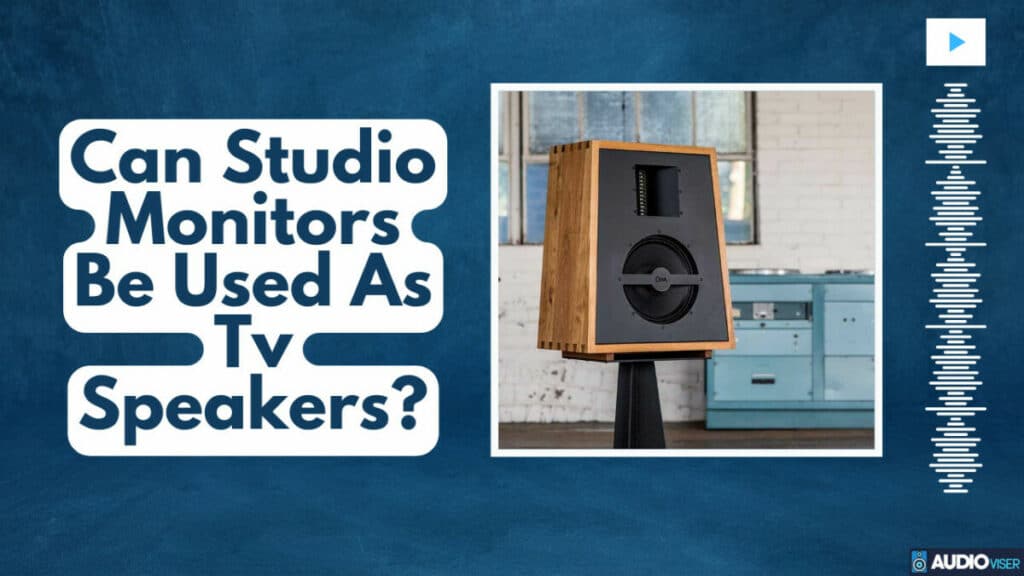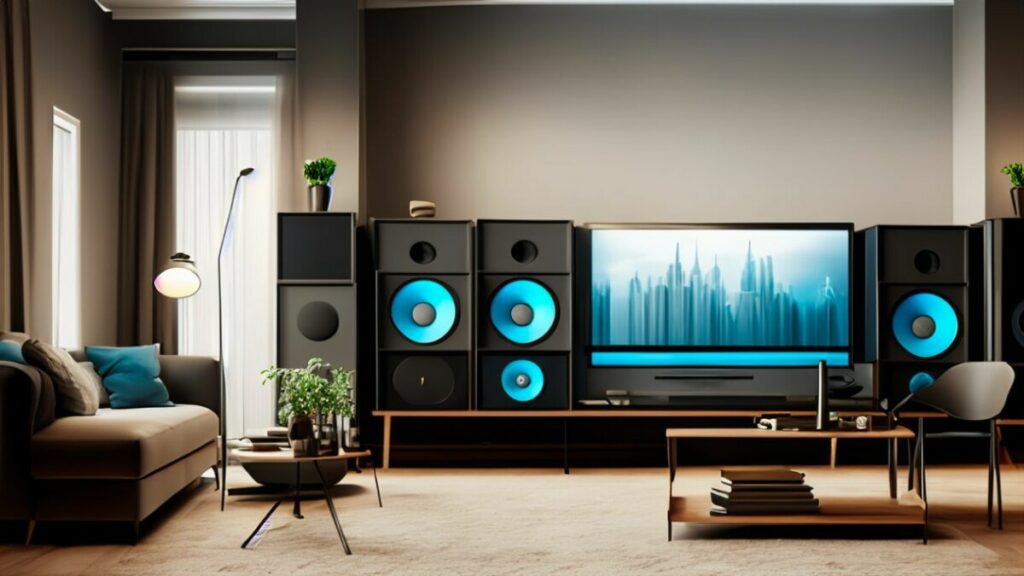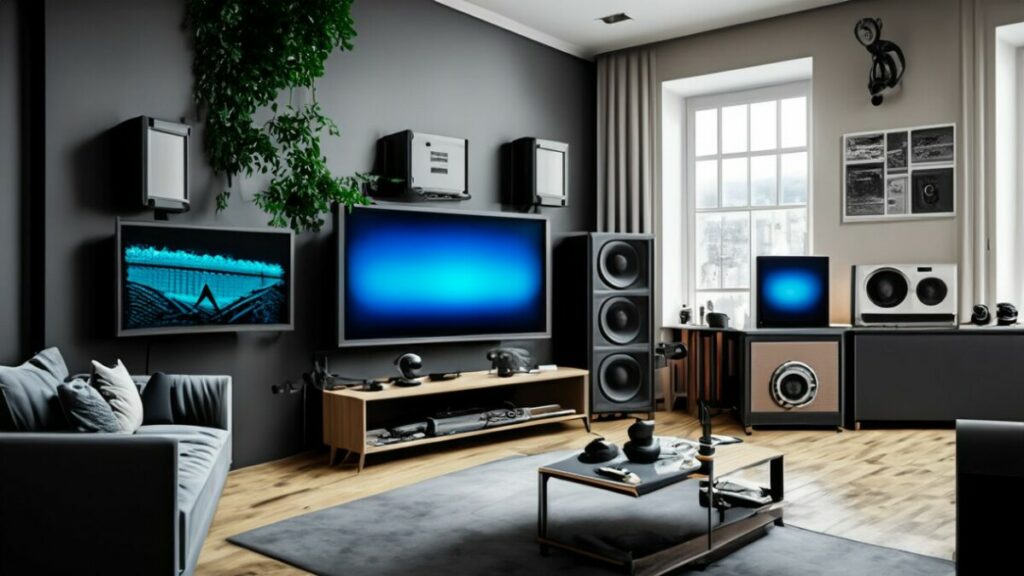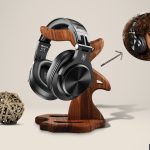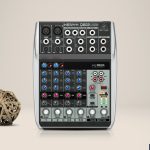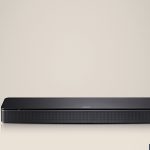Ever crossed your mind if your studio monitors could pull off being TV speakers? You’re definitely not the only one with this thought.
It’s kind of like using a high-end sports car for a regular grocery run – yeah, it could work, but it’s not really what it’s designed for, you know?
So, let’s get into the nitty-gritty of it all – the technical stuff, the good, the bad, and the how-to of using studio monitors as TV speakers.
We’ll give you the lowdown on if it’s a solid choice for your setup.
Should You Use Studio Monitors As TV Speakers?
For sure, you can totally use studio monitors as TV speakers. They’ll blast out clear and precise sound which is great when you’re trying to catch every word of a dialogue or hear those small background details in the sound effects. But whether or not you should actually use ’em as TV speakers, that’s up to you.
Let me break it down – studio monitors, they’re like the audio world’s equivalent of HD. They’re built to perfectly reproduce sound in a way that’s insanely accurate. But they don’t really twiddle with the sound to make it ‘warmer’ or ‘enhanced’ – a style that lots of folks prefer when they’re vegging out in front of the TV.
So, if you’re all about getting the nitty-gritty from your TV’s audio, studio monitors are your guy. They’ll deliver the audio just the way it was recorded. But on the flip side, if you’re more into a richer sound with a booming bass that gives you the feeling of being in a movie theater, you might wanna check out home theater systems. They are purpose-built to deliver that wide, cinematic sound that can take your TV watching game to a whole new level. So, in the end, it all boils down to what you’re looking for in your TV audio experience. But, have you ever wondered if studio monitors can actually be used for gaming? We covered that too.
Understanding the Functionality of Studio Monitors
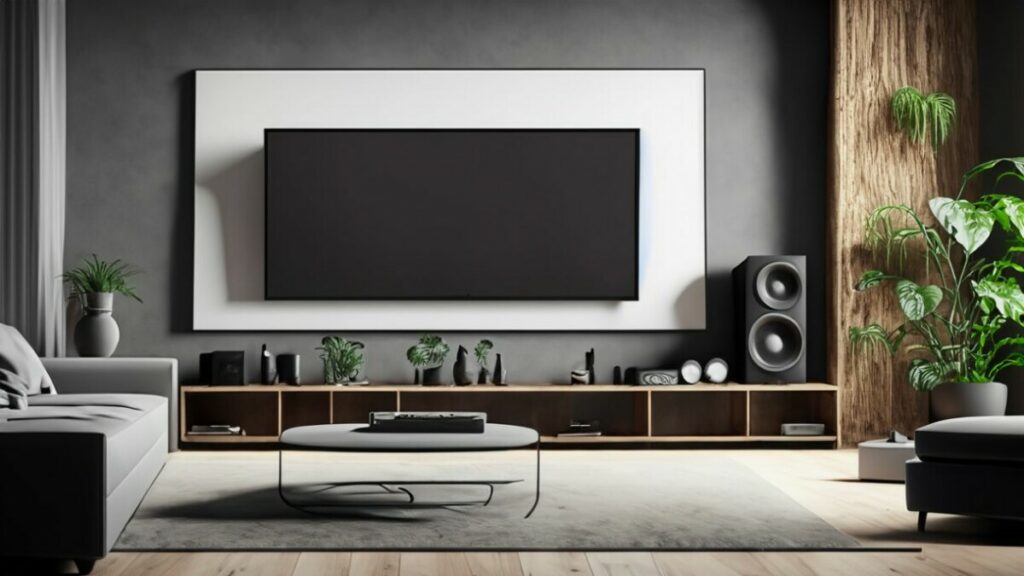
Now, the key to their awesomeness is this thing called monitor calibration. This is the magic that makes sure the sound produced is as true as it can get, across all frequency ranges. It’s a bit like tuning a guitar, adjusting the levels and EQ settings to make them vibe with the acoustics of your space.
And don’t forget about where you put them – placement is key. Ideally, you want them at ear level and pointing your way for the best sound projection. But here’s the thing, while you can totally use them as TV speakers, don’t expect the same surround sound you’d get from a top-notch home theater system. They’re great, but they’re not built to give you that cinematic experience.
The Technical Differences Between Studio Monitors and TV Speakers
Let’s break down the key differences between studio monitors and TV speakers, shall we? These puppies are two different beasts altogether.
Studio monitors – these bad boys are the unsung heroes in professional audio production. They deliver a super precise, no-frills sound that’s critical for mixing and mastering. They’re a bit of a splurge and bigger in size, but they’re super versatile and totally worth the investment.
Now, TV speakers are a whole other ball game. They’re designed for your everyday user and their main goal is to pump out sound that’s pleasing to the ear. They’re not as big on the wallet or size-wise, but they’re not as versatile, either.
Here’s a little cheat sheet for you:
| Feature | Studio Monitors | TV Speakers |
|---|---|---|
| What Are They For? | Audio Production | Everyday use |
| Sound vibe? | Straight-up, No Bias | Designed to Please |
| Pricetag? | A bit steep | Wallet-friendly |
| Size? | They’re the big leagues | More compact |
| Flexibility? | Sky-high | Not so much |
But remember, using studio monitors for your TV might not give you the chill, binge-watching experience you’re after because they’re built with different goals in mind. If you’re feeling adventurous, you can also consider the possibility of using a soundbar as a studio monitor.
Advantages and Disadvantages of Using Studio Monitors as TV Speakers
If you’re thinking about giving your sound system a serious upgrade, you’ve probably had the thought, ‘Hmm, what about using studio monitors instead of the same-old, same-old TV speakers?‘ It’s definitely a tempting idea, but let’s break it down and see if it’s actually worth it.
First off, using studio monitors as TV speakers can totally level up your audio game. But, hold up, there are a few things you’ve gotta keep in mind:
- Where to put them: The spot you choose for your monitors can make or break the sound quality. Ideally, you want them at ear level and tilted a bit towards you.
- Tweaking the settings: Studio monitors aren’t plug-and-play like regular TV speakers. You’ll need to spend some time getting the volume, frequency response, and phase alignment just right.
- Price tag: Brace yourself, these babies can be a bit pricier than your standard TV speakers.
- Setup: Getting these monitors up and running isn’t as straightforward as regular speakers. It’s a bit more complicated, but hey, nothing good comes easy, right?
Practical Steps in Setting Up Your Studio Monitors for Television
So, you’re finally leveling up your sound system, huh? Awesome! Let’s break down the game plan to perfectly tune those snazzy devices for your television.
First things first, the position of your monitor is super crucial. Aim to have your monitors on the same level as your ears, slightly angled inward, and make sure they’re equidistant from where you’ll be chilling. This is going to give you the best sound quality and stereo imaging.
Now, let’s get into the nitty-gritty of connecting these bad boys. If your TV has an analog output, then you’ve hit the jackpot! Just plug it straight into your monitors. If not, don’t sweat it. You might need an audio interface or a digital-to-analog converter. Just remember, your sound quality is only as dope as your weakest link. So, don’t skimp on the cables – do studio monitor cables matter? Absolutely! Go for the best you can get.
What Are the Pros and Cons of Using Bluetooth Speakers for TV?
Going for Bluetooth speakers for your TV can be a major upgrade. First up, you can kiss those annoying cables goodbye – you’ll have a sleek, clutter-free setup. Plus, their ability to easily pair with various devices adds a flexibility factor that’s pretty dope.
But don’t dive in just yet – there are a couple of downsides to keep in mind. Bluetooth speakers might not have the best range, and if they’re too far from your TV, you could be dealing with audio distortions. And then there’s the potential issue of audio latency, which could mean an annoying delay between what you see on screen and what you hear.
But when you stack it all up, the advantages of bluetooth speakers for tv shine brighter than the drawbacks, offering up a stellar, easy-to-use, and wire-free audio experience. Sounds like a winner, right?
Conclusion
Thinking about swapping your typical TV speakers for studio monitors? It’s a big yes from me. They mightn’t be the usual go-to, but the sound quality they bring to the table is next level.
Picture this – you’re chilling on your couch, and it’s like your favorite movie is unfolding right around you, thanks to the crisp, detailed sounds.
But heads up, setting these bad boys up isn’t as easy-peasy as your regular TV speakers.
It’s your call at the end of the day. You can stick with the simplicity of traditional TV speakers, or you can level up your game with the unmatched sound of studio monitors.
Choose wisely!
Audio Engineer
You’ll never find anyone more passionate about audio as me. I love to share my knowledge with others and help people find the right equipment for them.

